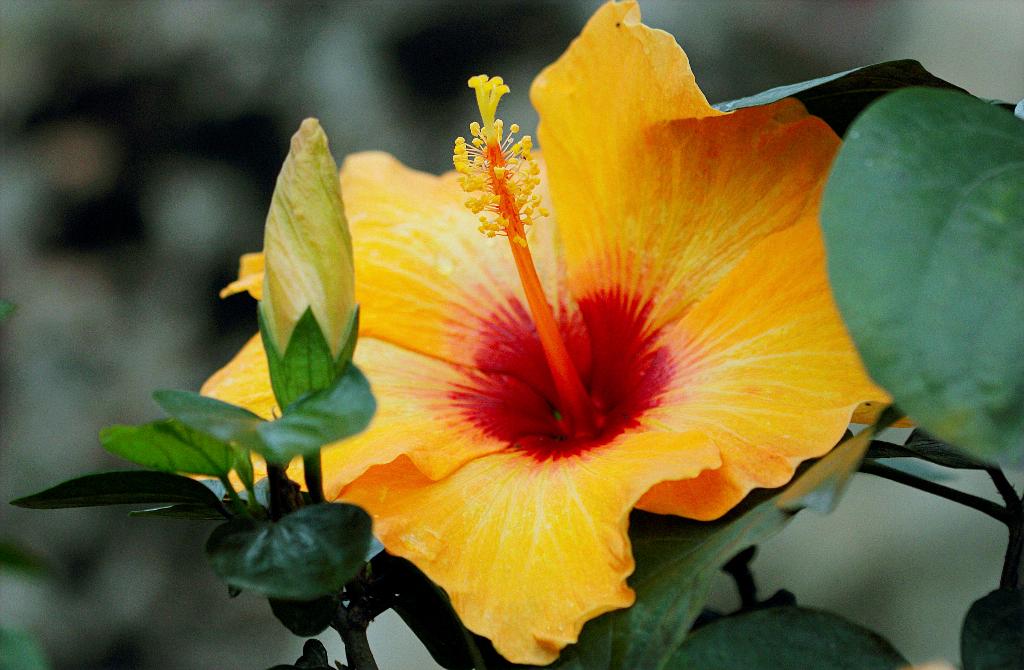When it comes to the fascinating world of flowers, the hibiscus plant undeniably stands out with its vibrant colors and unique blooming patterns. One common question that often arises among flower enthusiasts is whether hibiscus flowers close at night. Let’s delve into the intricate details of this captivating plant to uncover the truth behind its blooming behavior.
The Daytime Elegance of Hibiscus Blooms
During the daytime, hibiscus flowers unfurl their petals to reveal their exquisite beauty to the world. The vibrant hues of red, pink, orange, yellow, and white catch the eye of passersby, adding a touch of elegance to any garden or landscape. The blooming hibiscus serves as a beacon of warmth and color during the day, attracting bees, butterflies, and other pollinators with its nectar-rich blossoms.
Transitioning to Night: The Closing of Hibiscus Flowers
As the day transitions into night, the hibiscus plant undergoes a remarkable transformation. Unlike some flower species that bloom both during the day and at night, the hibiscus flower is known to close its petals as darkness descends. This natural process of closing at night serves as a protective mechanism for the delicate reproductive parts of the flower, shielding them from potential harm and preserving their vitality for the next day’s bloom.
The Role of Light and Temperature in Flower Behavior
It is essential to note that the blooming and closing of hibiscus flowers are influenced by external factors such as light and temperature. The presence of sunlight stimulates the opening of hibiscus blossoms, signaling to pollinators that the flower is ready for fertilization. In contrast, decreasing light levels in the evening trigger the closure of hibiscus petals, signaling the end of the day’s blooming cycle.
Adapting to Environmental Conditions: Hibiscus’s Survival Strategy
For the hibiscus plant, mastering the art of blooming during the day and closing at night is crucial for its survival in diverse environmental conditions. By synchronizing its blooming pattern with the natural rhythms of day and night, the hibiscus maximizes its chances of attracting pollinators, ensuring successful pollination, and ultimately producing seeds for future generations.
Underlying Biological Mechanisms of Flower Closure
The closure of hibiscus flowers at night is not merely a random occurrence but a finely orchestrated process governed by biological mechanisms. Hormonal changes within the flower, response to environmental cues, and genetic programming all play a role in regulating the opening and closing of hibiscus petals, highlighting the intricate dance of nature within this floral species.
Interplay Between Nature and Nurture in Flower Behavior
While the genetic makeup of hibiscus plants determines their inherent blooming and closing patterns, environmental factors also exert a significant influence on their behavior. Factors such as light intensity, temperature fluctuations, and humidity levels can impact the timing and extent of flower closure, highlighting the dynamic interplay between nature and nurture in shaping floral traits.
Significance of Nighttime Closure in Hibiscus Floral Biology
The nighttime closure of hibiscus flowers serves as a crucial aspect of their floral biology, contributing to their reproductive success and overall plant fitness. By safeguarding the delicate reproductive structures within closed petals during the night, hibiscus flowers ensure the preservation of pollen and ovules, facilitating successful fertilization when pollinators resume their visitation in the morning.
Appreciating the Beauty and Grace of Hibiscus Flowers
As we unravel the mysteries behind the blooming patterns of hibiscus flowers, we gain a deeper appreciation for the beauty and grace of these captivating plants. The transient nature of their blooms, opening up to the world during the day and retreating into a peaceful slumber at night, reminds us of the intricate ballet of life that unfolds in nature’s garden.
Cultivating Hibiscus: A Celebration of Nature’s Splendor
Whether you are a seasoned gardener or a casual admirer of flora, cultivating hibiscus plants in your garden offers a delightful opportunity to witness nature’s splendor up close. Observing the daily ritual of hibiscus flowers blooming and closing, you become a witness to the intricate wonders of plant life and a participant in the eternal cycle of growth, beauty, and renewal.
Conclusion: Embracing the Enigma of Hibiscus Flower Behavior
In conclusion, the question of whether hibiscus flowers close at night unveils a world of wonder and complexity within the floral realm. The dual nature of hibiscus blooms, flourishing in the light of day and retiring in the shadows of night, exemplifies the harmony and balance that pervade the natural world. By embracing the enigma of hibiscus flower behavior, we embark on a journey of discovery and appreciation for the exquisite beauty of nature’s creations.

